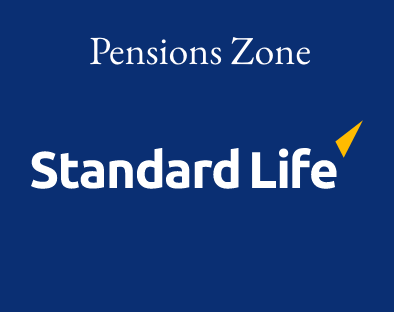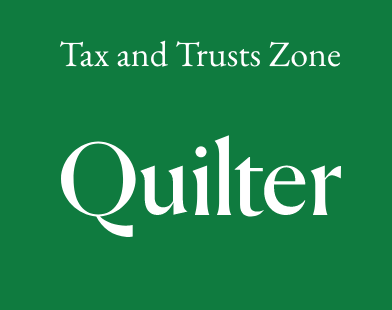For this month’s articleBarrie Dawson, Senior Technical Manager, M&G, highlights the questions most often asked of the M&G technical team around Discounted Gift Trusts.
Discounted Gift Trusts (DGTs) are an IHT planning solution allowing the removal of capital from the estate whilst retaining the right to a regular payment stream. They have different features and other requirements such as underwriting the settlor’s health to set one up, in comparison to a simple Gift Trust. In this article, Barrie Dawson, Senior Technical Manager at M&G, answers 10 common questions about DGTs.
Can the Settlor(s) retained rights from a DGT be included when calculating net income for the purpose of the normal expenditure out of income exemption?
No, as the settlor’s rights are capital payments and should be ignored. HMRC’s IHT manual (section IHTM14250) explains that payments received on a regular basis may appear to be income but are in fact capital in nature and uses receipts from a DGT as an example.
Is the Ongoing Adviser Charge taken into account when calculating the discount?
No. The discount is based on the payments expected to be paid to the settlor during their life. The size of the discount will depend on the level of payments being carved out by the settlor and their life expectancy which will be assessed taking into account their age and state of health.
Can trustees distribute some of the trust fund to a beneficiary during the settlor’s lifetime?
If there’s no explicit restriction in the trust provisions, the trustees could make a distribution to a beneficiary but they must ensure it won’t adversely affect their ability to maintain payments to the Settlor(s) while they are alive. Analysis would be required to determine a sufficient amount of capital to maintain the settlor’s rights and also the bond chargeable event implications.
If the trustees pay the settlor 5% of premium from outset does this mean their payments will end after 20 years when the tax deferred allowance has been exhausted?
Generally, the settlors rights are payable until their death or until the investment funds are exhausted, whichever occurs first. However, always check the trust provisions first as it’s possible to specify a term for settlor’s rights, which in theory could be aligned to 20 policy years on the bond.
The important point to note is the 20-year rule is not a trust matter. It relates to the accrual of the 5% tax deferred allowance on the bond only and it’s not a timeline for using the allowance. For example, if the settlors rights were 5% of the premium paid from outset (no ongoing adviser charge) there would be an excess event at the end of the 21st policy anniversary. Who’s liable for the gain will depend on whether it’s an absolute or discretionary DGT.
My client set up a DGT over 7 years ago. As the gift is outside of their estate can they instruct the trustees to stop making payments to them from the trust?
Yes, but it’s not a simple as the trustees stopping the regular withdrawal instruction on the bond.
Generally the Settlor(s) would need to give up their rights by deed and a solicitor might be required to draft the deed. Giving up their rights would also be deemed a further Potential Exempt Transfer (PET) or Chargeable Lifetime Transfer (CLT) if it’s an absolute or discretionary DGT respectively. To calculate the PET or CLT, underwriting and actuarial expertise will be required and this is likely to come at a cost, rather than a free service provided by the DGT provider.
Are the payments from a joint settlor DGT reduced on first death?
This depends on the trust provisions but in general, the rights are on a joint tenancy basis and will continue at the same level until second death. With this in mind, when advising a married couple, it’s important to consider the capital needs of the survivor on first death.
For example, a couple might require £2,000 a month while both are alive but if the survivor on first death will only require £1,000 to meet their expenditure needs, there would be surplus capital building back up in their estate. This could be counterproductive to their IHT objectives.
If the settlors require a discretionary trust then two single settlor DGTs might be more suitable. Each settlor would receive the payments they need during their lifetime from their own trust. On first death, the survivor would be a potential beneficiary their late spouses trust allowing the trustees to make payments to them if deemed necessary. Importantly, payments can be restricted to what the survivor needs and will spend to keep their IHT strategy on track. Single settlor Absolute DGTS would not work as on 1st death the capital would go to the beneficiaries and not be available for the surviving settlor.
If the settlor is declined a discount does this mean a DGT is unsuitable?
No, because the main objective of a DGT is not to get a discount. The main objective of a DGT is to gift capital into trust with the aim of mitigating an Inheritance Tax (IHT) liability and also carve out access to pre-determined capital payments for life to help maintain expenditure needs.
My client doesn’t want to disclose medical information. Can they still set up a DGT?
It will depend on the DGT providers practice, but if they allow it their indicative discount would be on a “nil discount” basis. This is because HMRC take the view that a discount is not justified unless medical evidence sufficient to underwrite the settlor’s life to the standards required for whole of life assurance was in existence when the transfer into trust is made.
The fact the settlors PET or CLT will not be reduced doesn’t mean a DGT is unsuitable as per the answer to the previous question.
If a discount is available should the settlor carve out access to the maximum withdrawal available, after considering the income tax position, to increase the size of the discount?
No, as the discount is a by-product of the terms of the DGT, not the main objective as explained in the answer to the previous question. If the settlor carves out more capital than they need the surplus will build up in their estate which will be counterproductive to their IHT strategy.
What happens if the beneficiary of an Absolute DGT dies before the settlor(s)?
The value of the deceased beneficiary’s share of the trust fund, after taking into account the open market value of the settlor’s rights, will be included in the beneficiary’s estate valuation. However, as the trustees must maintain the settlor’s rights, generally for life, it’s possible the estate might not receive a distribution many years and possibly nothing until the settlor dies.
Ultimately it will depend on the circumstances of each individual case, but this can be problematic if the inclusion of the beneficiaries share creates an IHT liability. A few red flags to consider at the recommendation stage would be an absolute beneficiary who is poor health and/or one who is not married (so no spouse exemption).
This issue doesn’t impact discretionary DGTs as the trust fund is not included in the beneficiaries estate calculation.
Main image: shapelined-_JBKdviweXI-unsplash

































